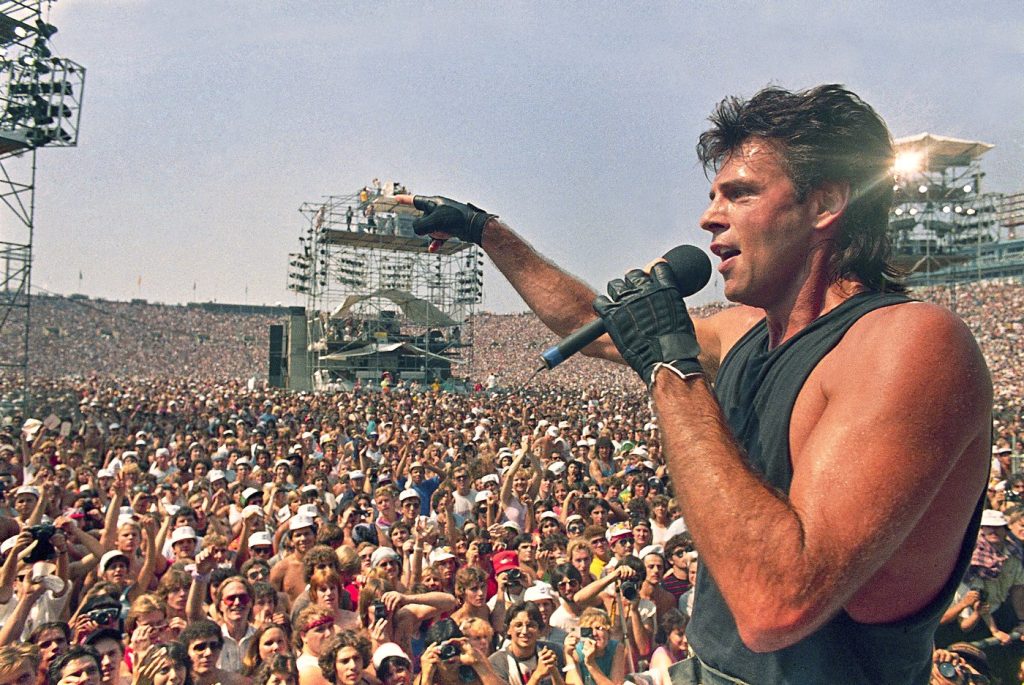NEW YORK (AP) — The Live Aid concerts, held on July 13, 1985, were aimed at raising awareness and funds for famine relief in Ethiopia, successfully garnering over $100 million. This monumental event was broadcasted simultaneously from Philadelphia's John F. Kennedy Stadium and London's Wembley Stadium, featuring iconic performances from music legends like Queen, The Who, and a reunion of Led Zeppelin.
Reflecting on the significance of the event, Rick Springfield humorously noted that the time span between Live Aid in 1985 and the current year is akin to the distance from Live Aid to World War II. Notable participants in the event, including Springfield, Bob Geldof, John Oates from Hall and Oates, and Rob Halford from Judas Priest, shared their recollections and insights about Live Aid in anticipation of its 40th anniversary.
Springfield recounted his performance, recalling the diversity of the lineup that included hip-hop group Run-DMC, where he initially questioned their musical style. He performed an electric set but acknowledged that “Jessie's Girl” had not yet reached its cultural prominence. John Oates, on the other hand, shared his excitement over performing in his hometown of Philadelphia, recalling how they joined forces with Motown legends Eddie Kendricks and David Ruffin, and later, the surprise appearance of Tina Turner with Mick Jagger, which elevated the energy of their performance.
Rob Halford from Judas Priest remembered the emotional moment of meeting folk icon Joan Baez, whose song “Diamonds and Rust” they had covered. Rather than reprimanding him, Baez revealed that her son preferred Halford's version, demonstrating kindness and admiration that left a lasting impression on him.
Two decades later, in 2005, Geldof organized Live 8, another significant initiative, featuring ten concerts worldwide. However, as the 40th anniversary of Live Aid approaches, there are no similar upcoming events, prompting discussions about the challenges of replicating such an undertaking in today's media landscape. Geldof pointed to the pitfalls of social media, suggesting that algorithmic fragmentation limits the possibility of unifying global causes through music.
Springfield concurred, expressing concerns over societal divisions that would complicate consensus on a single cause or a shared lineup of artists for a future event like Live Aid. John Oates emphasized the drastic changes in the music and entertainment landscape, questioning whether a gathering of today's stars comparable to the original event could occur, given the sheer volume of new music released daily.
Halford acknowledged the extremism present in the world today as a barrier to organizing a similar event in 2025. Nevertheless, he remains hopeful, referencing the recent Fire Aid concert in Los Angeles, featuring Billie Eilish and Stevie Wonder, as an example of empathy and collective action in response to contemporary crises.
In conclusion, the legacy of Live Aid continues to inspire conversations about humanitarian efforts and the potential for music to unite people, although the feasibility of orchestrating another event like it remains uncertain in today’s divided cultural climate.










